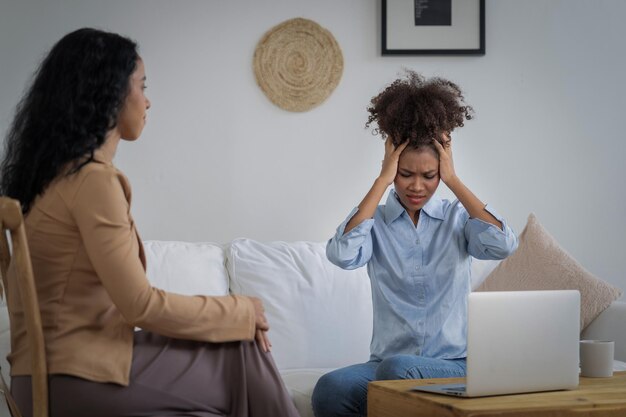Understanding the Roots of Anxiety: What Triggers It and How to Cope
Anxiety is a common human experience, often characterized by feelings of worry, nervousness, or unease. Although it's a natural response to stress, understanding what triggers anxiety is crucial for managing it effectively. Let's delve into the potential triggers of anxiety and explore practical approaches to understanding and dealing with them.
Unveiling the Triggers of Anxiety
Anxiety can be prompted by numerous factors, each impacting individuals differently. Recognizing these triggers can be an essential step toward better mental health.
H2: Genetic Predisposition
A family history of anxiety disorders can increase the likelihood of developing anxiety. Genetics play a significant role in how we process stress and react to potentially anxiety-inducing situations. While genetics can't be changed, understanding this predisposition can empower individuals to seek supportive and proactive measures.
H3: Nature vs. Nurture
The interplay between genetic and environmental factors often puzzles researchers. Although genetics provide the biological groundwork, environmental influences such as upbringing and life experiences can further mold anxiety responses.
H2: Environmental Factors
The environment we live in heavily influences our mental well-being. Circumstances such as trauma, stress from work or relationships, or significant life changes can trigger anxiety:
- Work Pressure: Meeting deadlines, heavy workloads, or conflicts with colleagues can heighten stress levels.
- Personal Relationships: Family dynamics, friendships, or romantic relationships might bring anxiety, especially during times of conflict or change.
- Life Transitions: Events such as moving to a new city, starting a new job, or other significant changes can disrupt one's sense of stability.
H2: Psychological Factors
Personal beliefs and attitudes towards oneself and the world can significantly impact anxiety levels.
H3: Self-Perception and Anxiety
Negative self-perception can exacerbate anxiety. This stress often comes from internal dialogues focused on self-doubt or fear of failure.
H3: Coping Mechanisms
The strategies individuals employ to deal with stress influence their anxiety levels. Those without healthy coping strategies might experience anxiety more frequently or intensely.
H2: Biological Factors
Brain chemistry and hormonal imbalances are key biological factors in anxiety:
- Neurotransmitters: Chemicals like serotonin and dopamine play vital roles in regulating mood. Imbalances can lead to heightened anxiety.
- Hormones: Hormonal changes, such as those experienced during puberty, pregnancy, or menopause, can trigger anxiety.
H2: Lifestyle Factors
Modern lifestyles, often fast-paced and digitally driven, can contribute to anxiety:
- Sleep Patterns: Lack of quality sleep disrupts normal brain functions, often resulting in mood disturbances and heightened anxiety.
- Diet and Nutrition: Poor nutritional habits, such as excessive caffeine or sugar intake, can exacerbate anxiety symptoms.
- Physical Activity: Regular exercise is shown to reduce anxiety, while sedentary lifestyles might contribute to its development.
Navigating Through Anxiety
Understanding the triggers of anxiety is just the first step. What follows is the journey of managing and coping with it effectively. Here are some practical approaches to consider:
H2: Mindfulness and Meditation
Mindfulness practices can be transformative for managing anxiety. They nurture awareness and presence, minimizing the grip of anxiety-inducing thoughts:
- Meditation: Daily meditation can help calm the mind and reduce stress.
- Yoga: Combines physical movement, meditation, and breathing to foster a state of peace.
H2: Cognitive Behavioral Techniques
Cognitive Behavioral Therapy (CBT) is an acclaimed approach for managing anxiety. It involves identifying negative thoughts and transforming them into positive actions and thoughts.
H3: Journaling and Reflection
Writing down anxious thoughts can help individuals better understand their anxiety patterns and triggers. Reflection promotes a clearer perspective and potential solutions.
H2: Physical Well-being
Maintaining physical health is integral to mental health:
- Regular Exercise: Helps release endorphins, chemicals known to combat stress.
- Balanced Diet: A nutritious diet supports neurotransmitter production and mood stabilization.
- Adequate Sleep: Prioritizing sleep ensures mental clarity and emotional stability.
H2: Social Connections and Support
Isolation can intensify anxiety. Building strong social networks and seeking support can mitigate the feeling of being overwhelmed:
- Engage with Community: Participating in community activities provides a sense of belonging.
- Seek Professional Help: Professional therapists can offer strategies to manage anxiety effectively.
H2: Adaptive Strategies
Learning adaptive strategies can help individuals navigate through anxiety without letting it take control:
- Time Management: Organizing tasks reduces the likelihood of feeling overwhelmed.
- Setting Boundaries: Recognizing limits and setting boundaries can protect mental well-being.
A Step Towards Peace of Mind
Anxiety, though commonly faced, does not have to dominate one's life. By identifying triggers and adopting strategies to manage them, individuals can pave the way for a healthier, more peaceful existence. The understanding and tools shared here aim to empower individuals to take charge and approach anxiety with confidence. 😊
Practical Tips for Managing Anxiety
- 📝 Journal Regularly: Document feelings and triggers.
- 🧘 Engage in Mindfulness: Practice meditation or yoga.
- 👥 Build a Support Network: Connect with others for emotional support.
- 🍽️ Prioritize Nutrition: Eat a balanced diet for optimal mental health.
- 🏋️ Stay Active: Regular exercise is a natural stress reliever.
By recognizing and addressing your unique anxiety triggers, you can work towards achieving a balanced and fulfilling life. Remember, everyone’s journey is different, and finding what works for you is key.

